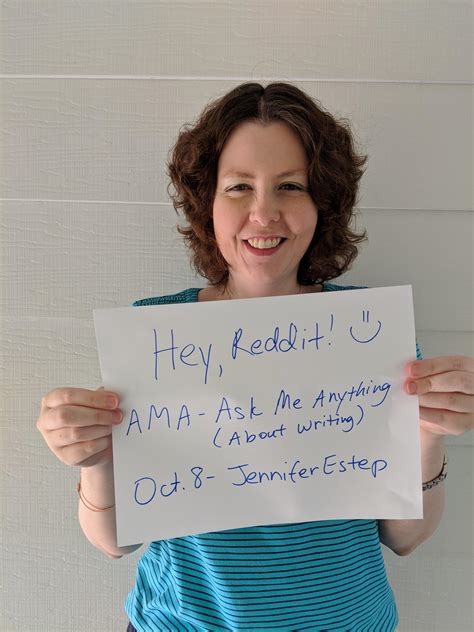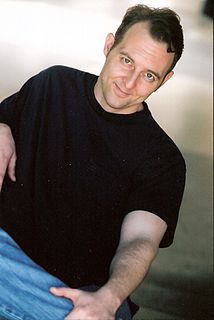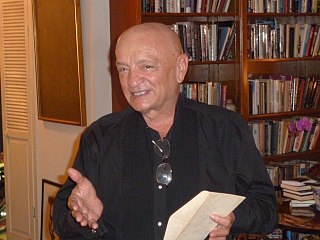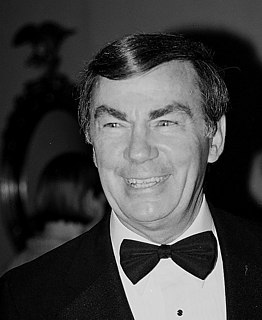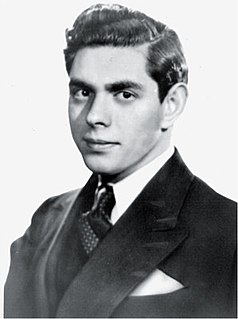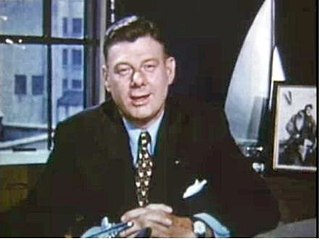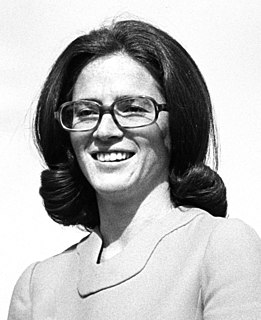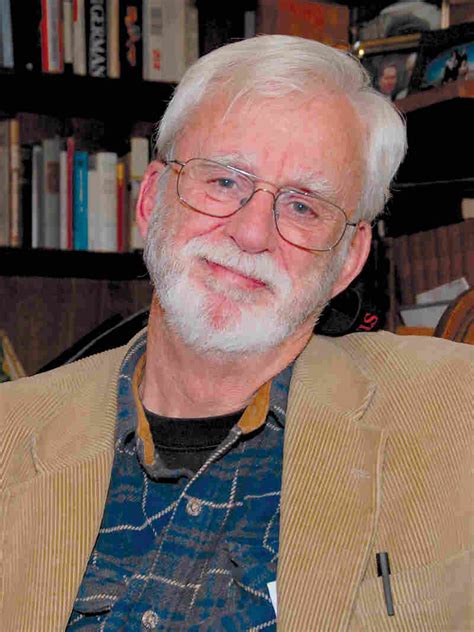Top 241 Deadline Quotes & Sayings - Page 4
Explore popular Deadline quotes.
Last updated on April 20, 2025.
But we are almost certainly going to miss our [global warming] deadline. We cannot get the 10 lost years back, and by the time a new global agreement to replace the Kyoto accord is negotiated and put into effect, there will probably not be enough time left to stop the warming short of the point where we must not go.
When you write for a living and you can't do anything else, you know that sooner or later that the deadline is going to come screaming down on you like a goddamn banshee. There's no avoiding it...So one day you just don't appear at the El Adobe bar anymore; you shut the door, paint the windows black, rent an electric typewriter and become the monster you always were - the writer.
So far, I've never missed a deadline for a term paper, a review, a manuscript. I perform the mumbo-jumbo of voting with belief in my heart, I've not yet won even a jaywalking ticket, and unlike my father, whom I fault in this respect, I refrain from opting out of jury duty; instead, they mostly kick me out.
I remember, once I was stressed, with an upcoming paper deadline. That little Microsoft Word clippy guy would show up in my face, jumping around and asking if I needed help. It had no understanding of my emotions and had zero empathy. That got me interested in this idea of tech being responsive to our emotions.
When I first have an idea, I'll spit-ball it with my husband: he's my beautiful ideas sounding board. I usually have a year deadline from start to finish, so I'll piss about for three months and pretend to get started. Then there's four to six months of actual writing and, after that, submissions, edits, and eventually a finished product.
Time passes and I am still not through it. Grief isn't something you get over. You live with it. You go on on with it lodged in you. Sometimes I feel like I have swallowed a pile of stones. Grief makes me heavy. It makes me slow. Even on days when I laugh a lot, or dance, or finish a project, or meet a deadline, or celebrate, or make love, it is there. Lodged deep inside of me.
Instead of giving the effort the level of attention needed, the Air Force has wasted a year doing very little to end our reliance on Russian rocket engines, if the Air Force is unwilling to do what is necessary to meet the 2019 deadline, they are going to have to figure out how to meet our space launch needs without the RD-180 (Russian engine).
Can you play the piano like Beethoven? Or sing like Carly Simon? Can you take fie pages' worth of quotes and turn them into a usable story ten minutes before deadline? I don't think so, unless you have more hidden talents I don't know about. We all have our special sills. They don't make us better or worse than each other. Just different
Louis Brandeis really inspired me to write this book [Louis D. Brandeis: American Prophet]. It was a crazy deadline. The editor said I'd miss the hundredth anniversary unless I pumped the thing out in six months, because I'd been delaying and dilly dallying for so long. So he both inspired me to get up early and write.
For some reason at Sundance, more than other festivals that I'm aware of, you find filmmakers rushing to screen works that sometimes aren't completed. In my seven years of programming at Toronto, I'm not aware of any documentaries that went back for serious editing after their premiere - other than those presented as works-in-progress. But at Sundance every year there seems to be a few films that push the deadline so hard that they get taken back to the edit room afterwards.
There's nothing like a deadline to get the old blood flowing. All the juices, really. It doesn't follow, if you think about it. You'd assume certain things ... certain activities ... would become unimportant. Certain betrayals would become unbearable. But they don't really. In fact, quite the opposite. Everything takes on a new light. The impossible becomes possible, desirable even. It's quite remarkable.
If anybody was Mr. Jazz it was Louis Armstrong. He was the epitome of jazz and always will be. He is what I call an American standard, an American original. ... I merely took the energy it takes to pout and wrote some blues. ... I don't need time, I need a deadline. ...There are two kinds of music. Good music, and the other kind. ... Music is my mistress, and she plays second fiddle to no one.
You must stop editing--or you'll never finish anything. Begin with a time-management decision that indicates when the editing is to be finished: the deadline from which you construct your revisionary agenda. Ask yourself, 'How much editing time is this project worth?' Then allow yourself that time. If it's a 1,000-word newspaper article, it's worth editing for an hour or two. Allow yourself no more. Do all the editing you want, but decide that the article will go out at the end of the allotted time, in the form it then possesses.
You know, I began my life as a creative person writing true things for magazines and telling some very honest, straightforward personal essaying for This American Life, but until someone forces you, with a deadline, to really observe your life - unless you're motivated to do it yourself - there's so many stories that you miss.
I don't keep a diary or a journal. Sometimes I'll send emails to friends and that's a way of recording what I was thinking at any given time. But I've never been a journal keeper. I feel like part of that is because I'm always on deadline. I've been a freelancer my entire career and, at any given time, I have several deadlines for all sorts of things whether it's some magazine piece or ad copywriting or anything. Obviously, people with deadlines keep journals all the time but, for me, the idea of doing more writing is never appealing. It's why I never blog.
Ask creative people where they get their ideas, and they will roll their eyes. It's the most common question, but it's also a bad one because the answer is inevitably disappointing. From the inside, creativity seems like an arduous task, often involving plebeian, imperfect choices, driven less by inspiration than by deadline.
When you take that to the next level of guiding a group of filmmakers to actually depict him, it's even more challenging. The one that that I think everybody involved believes is that we won't move forward with this until we believe it's right. There's no deadline that a movie has to be made by. We have to believe that we have served the responsibility, however long it takes us to get to that point.
I always thought that digital first was a simplistic notion, and I am not even sure quite what it means. It should be stories first. Let's take the Paris story: the New York Times covered it all day, we held nothing back. Everything we learned, we published online. Then, when you approach your print deadline, you have to do two things. You have to polish those stories that are online because print is less forgiving of mistakes. Secondly, in an ideal world, you pick one thing that will feel fresh and compelling to people in the morning when they pick up the print paper.
I feel like my life is at its happiest when I don't have a looming deadline. There's some really groovy wonderful times, when I'm like, "I have a new piece, I'm excited about it, I'm reading all these books about it, but there's not a lot of time pressure, and I'm financially stable enough right now that I don't have to be trying to get another job." But that's so rare.
Because it is such a huge crisis, because it puts us on a firm science-based deadline, it's a once-in-a-century opportunity to build a better society and address raging inequality, create huge numbers of jobs, rebuild our public infrastructure. But, we can't do it unless we break every single rule in the free-market playbook. Which is why the worst people in the world all deny climate change.
Of course, Sam [Fuller] was like, "No problem," because he treated it like a newspaper deadline. We worked long hours, often very late into the night, in his garage, which had been converted into an office. It was freezing cold outside and there was no heat in the garage, so he had a little space heater over by his side and I had a blanket that he graciously gave me to drape around my shoulders like a Navajo Indian. And he gave me cigars, too, of course.
I think I've learned over the years, because you'd have to be stupid not to, that when a book publisher gives you a deadline they're just kidding for the most part. I don't know what they do with it, it's like you send them your book and they just hold it in their hands for like six months and I don't know why, and you realize you probably had more time.
I once set myself a deadline: half a chapter a week, 20 minutes a day. The thought froze me instantly, like literary Botox. I returned to my non-schedule: sleeping, writing 20 minutes, and then back to sleep. Breakfast in bed, with juice congealing on the sill: pages and pages began to pour out again.
People say nice things to me -- like that I ought to run for president -- which tells me that they like me. But I have my own deadline for how long I should be in Washington. I think you can get accustomed to red tape and many unfair things that go on in government. Once you stop getting angry about inefficiencies, waste, and injustice, you ought to get out. That's my time limit.
Our modern, deadline-a-day lifestyle overtaxes our adrenal glands, which end up overproducing cortisol, which in turn makes it nearly impossible to sleep and can put you at risk for a heart attack. Raised cortisol also boosts your insulin levels, which can cause you to pack on the pounds, especially around the midsection.
Nothing concentrates the mind like a firm deadline, and a little voice in the back of my mind reminding me that, "If you don't write, you don't eat." We all want to be respected and appreciated, but when you get a big honor like winning the Pulitzer, people start to look for your work in a new way with higher expectations. Today, the best thing about having won is when I get a nasty comment from some internet troll I can remind myself of the Pulitzer and say, "Well, somebody appreciates me".
It's no mystery why many of us in the media can't get enough of the fabricators Jayson Blair and Stephen Glass, the latter of whom concocted more than a score of bogus feature stories for the New Republic (and who wrote for other magazines, including this one, once) in the mid-1990s. Anyone--journalist, student, academic--who has ever stared at a blank screen, their brains grinding emptiness, and thought, How can I fill this hole? knows that in those desperate moments before a deadline, almost anyone can do almost anything: make stuff up, plagiarize, scribble senseless half-truths.
I was about 20 when my mom got sick with cancer and it was bad. It was very scary and at the time I was doing my first screenplay and I was on deadline and was alone with my father in Massachusetts. I said, "Pop, you know, I don't how I'm going to work. I don't know how I can get this done. You know, I got to hand this script in and I can't think about anything but Mom." He said, "Well, you know, now is the time when you're going to learn what it means to compartmentalize." And those words really had an impact on me.
It all depends on what I'm working on and if there is a deadline involved. Anything that's headed toward a magazine or newspaper is hacked out on the computer; that's a matter of efficiency. I write longer pieces of prose on a typewriter because the act of retyping it for the computer is a useful tactic for revision. Poems tend to be written longhand.
The characters are born from repetition, from repeatedly thinking about them. I have their outline in my head. I become the character and as the character I visit the locations of the story many, many times. Only after that I start drawing the character, but again I do it many, many times, over and over. And I only finish just before the deadline.
But why must everything have a practical application? I'd been such a diligent soldier for years - working, producing, never missing a deadline, taking care of my loved ones, my gums and my credit record, voting, etc. Is this lifetime supposed to be only about duty? In this dark period of loss, did I need any justification for learning Italian other than that it was the only thing I could imagine bringing me any pleasure right now?
I start songs all the time. If I weren't so lazy, I would finish them. It's like when I have a deadline I have to. I always feel very lucky that I am forced to make records at certain times. If I was forced to make 2 records a year, I would write twice as many songs. I can't make myself finish something unless I am forced
Every deadline was a crisis … No doubt it has something to do with a deep-seated personality defect, or maybe a kink in whatever blood vessel leads into the pineal gland … On the other hand, it might easily be something as simple and basically perverse as whatever instinct it is that causes a jackrabbit to wait until the last possible second to dart across the road in front of a speeding car.
Stress is part of life. It is something we all experience from time to time. Sometimes it reflects our own busy lifestyles or key moments such as exams, moving house, organising an event, or coping with a bereavement. Often it is associated with work: meeting a deadline, dealing with difficult people, or meeting stretching targets.
A few Disney TV composers had me pinch-hit writing some scoring cues to picture. Disney tapped me to be the composer for the underscore and song producer for this new show called "Phineas and Ferb."There is nothing like a successful animated show to get your chops up. You have to do every style - action, adventure, romantic, suspense, spy, poignant, rock, funk, big band - delivered on a deadline.
When I am writing a novel, though, then it's usually three or four hours a day. Ideally, right after lunch until three or four, but sometimes picking up again around ten, going until a touch after midnight. I rarely write in the morning, unless I'm on deadline. I do like rewriting in the morning, though. Guess it's the way my brain's put together. Or, the way it's falling apart.
When I was getting ready for the release of 'Deadline,' when it was coming out soon, I decided that the appropriate way to get people excited about the book would be to write a novella in 30 pieces and publish a piece on my blog every day for a month... during a convention, a week-and-a-half-long trip to New York, and a doll traders' expo.
When you first quit your regular job and you become a full-time writer, you are paralyzed with free time. You have so much free time. When you are at home, you have a guitar. There's a cat. You got to find ways to create an environment when writing is like going to work. Be efficient with the hours you put into the book. So I go there the same time, every day - like 7:30 am - and I leave around 2 pm, or longer, if I have a deadline.










